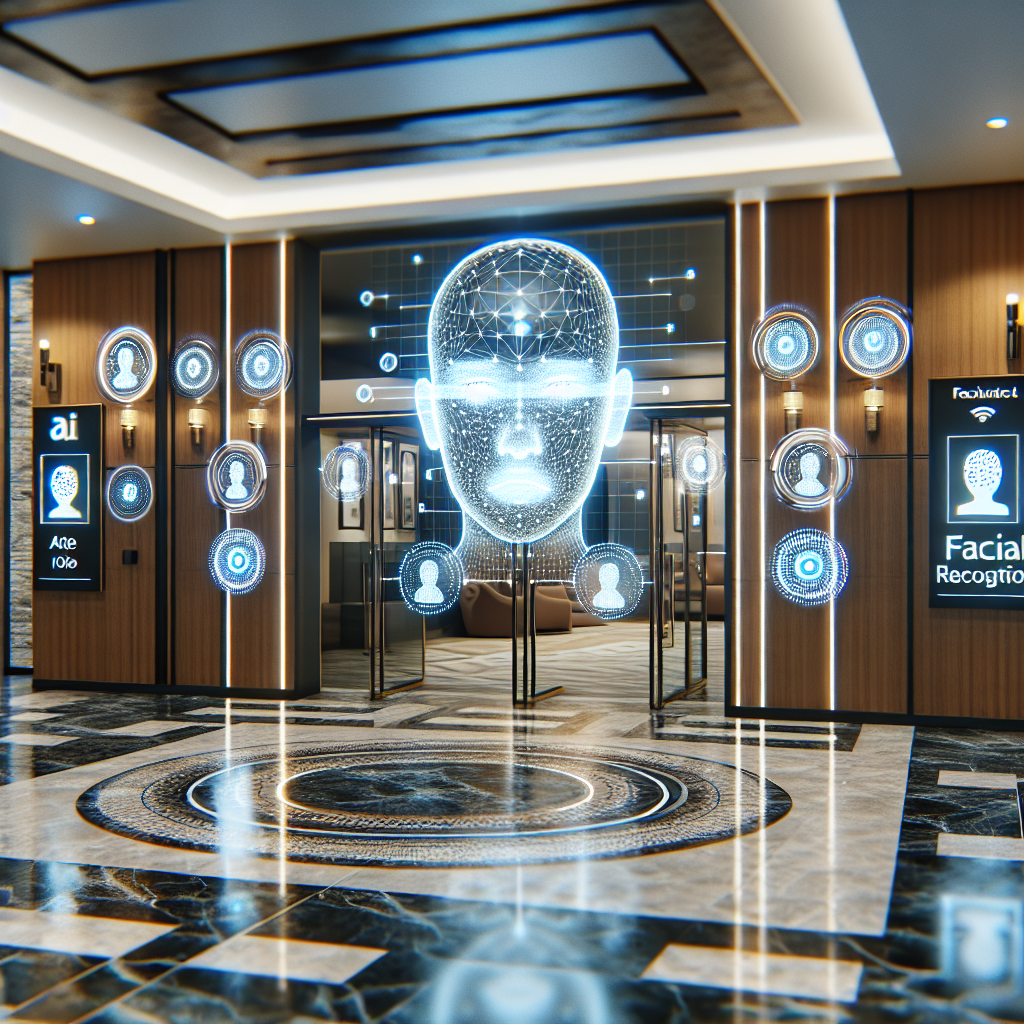Artificial intelligence (AI) and facial recognition technology have become increasingly prevalent in the hospitality industry, particularly in hotels, as a means of enhancing security measures. By leveraging these advanced technologies, hotels are able to better protect their guests, staff, and property from potential threats and security breaches. In this article, we will explore how AI and facial recognition are being used to improve security in hotels, as well as address some common questions and concerns surrounding this technology.
Facial recognition technology is a biometric system that uses facial features to identify individuals. By capturing and analyzing unique facial characteristics such as the distance between the eyes, nose, and mouth, facial recognition systems are able to accurately match faces to a database of known individuals. This technology has been widely adopted in various industries, including law enforcement, banking, and retail, due to its ability to provide fast and accurate identification of individuals.
In the hospitality industry, hotels are increasingly turning to facial recognition technology to enhance their security measures. By deploying facial recognition systems at key access points such as entryways, elevators, and restricted areas, hotels are able to monitor and control access to their premises more effectively. This technology can also be integrated with existing security systems such as keycard access and CCTV cameras to provide an additional layer of security.
One of the key advantages of using facial recognition technology in hotels is its ability to accurately identify individuals in real-time. Unlike traditional security measures such as keycards or PIN codes, which can be lost or stolen, facial recognition technology relies on unique biometric data that cannot be easily replicated or manipulated. This makes it a more secure and reliable method of verifying the identity of guests, staff, and other individuals on hotel premises.
Facial recognition technology also offers hotels the ability to track and monitor the movements of individuals within their premises. By capturing and storing facial images of guests and staff as they enter and exit the hotel, facial recognition systems can provide valuable data on the whereabouts of individuals in the event of a security incident. This can help hotel security teams to quickly identify and respond to potential threats, such as unauthorized individuals or suspicious behavior.
In addition to enhancing security measures, facial recognition technology can also improve the overall guest experience in hotels. By using facial recognition systems for check-in and check-out processes, hotels can streamline the guest registration process and reduce waiting times at the front desk. This not only improves efficiency and convenience for guests, but also allows hotel staff to focus on providing a more personalized and attentive service.
Despite the many benefits of using facial recognition technology in hotels, there are also some concerns and challenges that need to be addressed. One of the main concerns surrounding facial recognition technology is privacy. As facial recognition systems capture and store biometric data of individuals, there is a risk that this data could be misused or accessed without consent. Hotels must therefore ensure that they have robust data protection policies in place to safeguard the privacy and security of guest and staff data.
Another challenge with facial recognition technology is the potential for inaccuracies and biases in the identification process. Facial recognition systems rely on algorithms to match facial features to a database of known individuals, and these algorithms may not always be 100% accurate. There have been instances where facial recognition systems have misidentified individuals, leading to false positives or false negatives. Hotels should therefore regularly test and calibrate their facial recognition systems to ensure reliable and accurate identification of individuals.
In conclusion, AI and facial recognition technology have the potential to significantly enhance security measures in hotels by providing fast and accurate identification of individuals, monitoring and tracking movements within premises, and improving overall guest experience. While there are concerns and challenges associated with the use of facial recognition technology, hotels can mitigate these risks by implementing robust data protection policies and regularly testing and calibrating their systems. By leveraging the power of AI and facial recognition technology, hotels can create a safer and more secure environment for their guests, staff, and property.
FAQs:
Q: Is facial recognition technology secure?
A: Facial recognition technology is generally considered to be a secure method of identification, as it relies on unique biometric data that is difficult to replicate or manipulate. However, there are potential risks of misuse or unauthorized access to facial recognition data, so hotels should implement robust data protection policies to safeguard the privacy and security of guest and staff data.
Q: Can facial recognition technology be used for check-in and check-out processes in hotels?
A: Yes, facial recognition technology can be used to streamline the guest registration process and reduce waiting times at the front desk. By capturing and storing facial images of guests, hotels can quickly and accurately verify the identity of individuals during the check-in and check-out processes, improving efficiency and convenience for guests.
Q: Are there any concerns with the accuracy of facial recognition technology?
A: While facial recognition technology is generally accurate, there have been instances where facial recognition systems have misidentified individuals, leading to false positives or false negatives. Hotels should regularly test and calibrate their facial recognition systems to ensure reliable and accurate identification of individuals.
Q: How can hotels ensure the privacy of guest and staff data captured by facial recognition technology?
A: Hotels can ensure the privacy of guest and staff data by implementing robust data protection policies, such as encryption of facial recognition data, access controls, and regular security audits. Hotels should also obtain consent from individuals before capturing and storing their facial images, and clearly communicate how their data will be used and protected.

